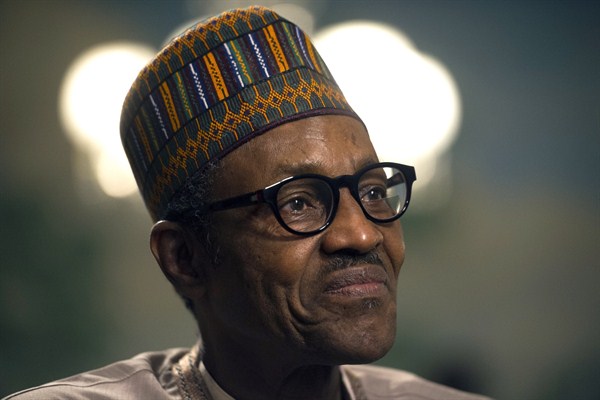Nigeria’s president, Muhammadu Buhari, spent three days last week in France, on his second major trip out of Africa since taking office on May 29. The items topping Buhari’s agenda in Paris—economic investment and security cooperation—reflected his main challenges at home: an economy in turmoil and the persistent threat of the jihadi movement Boko Haram. The visit also demonstrated Buhari’s patient, long-term thinking about Nigeria’s problems, which includes a greater willingness to work with neighbors and international partners than his predecessor, Goodluck Jonathan.
At the same time, demands within Nigeria for immediate change confront Buhari with an imperative to demonstrate progress quickly or risk losing popularity. That includes Buhari’s anti-corruption drive, which is inextricably bound up with his promise to revitalize Nigeria’s economy. But his early pledges face the reality of a still-troubled economy and tough political choices ahead.
Buhari, a former military ruler and long-time opposition candidate, won the 2015 election largely because of his anti-corruption image and perceived toughness. Yet Nigeria’s politics have already proved difficult for Buhari to manage. The candidate of a loose coalition, he saw quickly how friends can become rivals: His picks in the National Assembly for Senate president and speaker of the House of Representatives lost out to factions within his own party that joined with Jonathan’s allies to choose parliamentary leaders. He still doesn’t have a Cabinet. In July, he wrote that selecting ministers would not occur until proper rules had been established and qualified individuals had been identified. Other factors may be at work in preventing key appointments, however, including tension between Buhari and the National Assembly.

